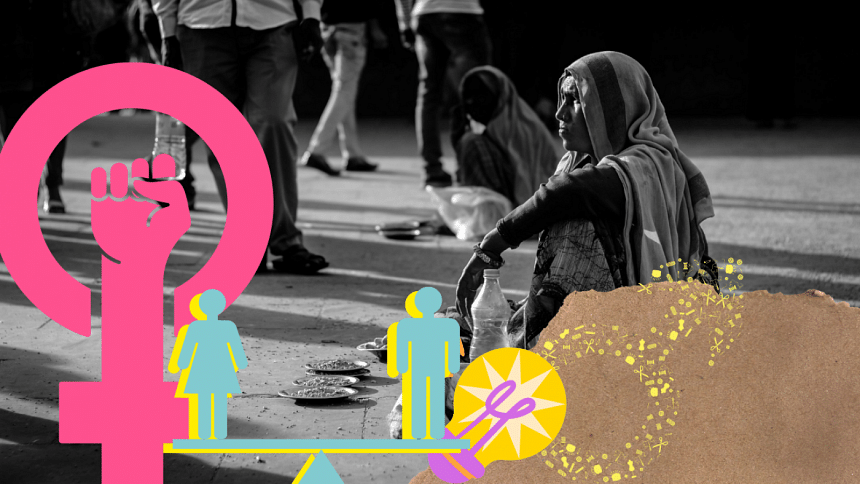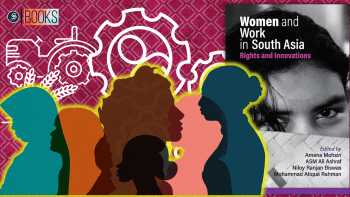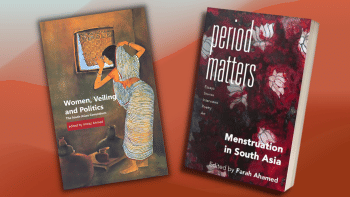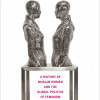‘Women, Gender and Development': Rocky ride along the evolutionary scale

Close to a decade has passed since Nazmunnessa Mahtab has published Women, Gender and Development: Contemporary Issues, a fairly all-encompassing book on women and gender issues. At the outset of the book, in her Preface, the author explains her rationale for composing it: "This book is the culmination of a series of lectures I have been offering to the students of different departments of the University of Dhaka who have courses on women, gender and development issues." That will partly explain the occasional pedantic bent of the book (by no means a demerit) as well as its all-encompassing nature in dealing with a very crucial topic in human and societal evolution: women and gender issues.
Nazmunnessa Mahtab is a Professor in Dhaka University's Department of Women and Gender Studies, of which, incidentally, she is one of the founding members, after having completed a lengthy stint as a teacher in that University's Department of Public Administration. The book under review provides a clear pointer to her love for women and gender studies, and in her quest to find answers to the questions that have arisen regarding the evolution of the concept that now understandably grabs the attention of development practitioners as well as curious laypersons on the issue.
Mahtab introduces at the beginning of her book the concept of feminism, which might as well arouse debate among others not in tune with her, and asserts that "the driving force behind women's studies is Feminism" (italics author's). Echoing Kumari Jayawardena, Mahtab makes the following point that evokes conceptual evolution: "In the context of South Asian countries like Bangladesh, India, Nepal, Pakistan and Sri Lanka the words 'feminism' and 'feminist' have become emotive words that evoke hostile reactions."
The author then brings her readers to the contemporary world when she asserts that "the meaning of the word has been expanded to mean an awareness of women's oppression and exploitation within the family, at work and in the society, and conscious action by women and men to change the situation." Touché! Mahtab quite deftly navigates through some expected thorny issues relating to a vital subject in global developmental issues. What could be a truism is the author's assertion that "…the final argument is that the legitimacy and autonomy of Women and Gender Studies, as a field of intellectual activity in its own right, must be asserted and maintained in the context of feminist perspective" And, critically, "It is crucial to maintain the connection between women's studies and the real world, especially in terms of the creation of knowledge and ways of thinking and doing research that will positively affect policy decisions."
Mahtab focuses on a different approach for studying women: The Evolutionary Approach, which anchors on the issue that men's domination of women everywhere was based on male control of strategic resources; The Structural Approach, The Productive Approach, The Traditional, Cultural, and Religious Approach. She takes up quite substantially on the status of women in the Third World.
Mahtab provides her own answer to the cultural theme when she avers: "The virtual exclusion of women, their lives, works and struggles could be understood at the theoretical level from a survey and critique of the dominant perspectives in development models/theory of the past." She is rather skeptical that, despite positive effects, or because of hindrances, women continue to face formidable hurdles towards gender equality: "Women are pitted against two enemies—First is Poverty which tugs them down on to the lowest rungs in their societies. Second is Patriarchy—which sabotages their attempts to climb higher" (from a study based on just seven single mothers in seven countries—Australia, Brazil, China, Egypt, India, Scotland and Uganda—and, hence, subject to limited sample size).
Different currents in feminism are dismissed by her and her point that emerges is that, "'Feminism' is a movement, a set of beliefs, that problematize gender inequality. Feminists believe that women have been subordinated by men's greater power, variously expressed in different arenas. They value women's lives and concerns, and work to improve women's status. There are many feminisms with different emphasis and aims." She goes on to discuss at some modest length the different currents in feminism: Liberal Feminism, Radical Feminism, Marxist Feminism, and Eco-Feminism.
Mahtab advances two important conditions for the advancement of women and promotion of gender equality. One is political commitment at the highest level. The other is to encourage and strengthen partnerships and cooperation between the Government and NGOs, women's organizations, civil society to form a common agenda and a common platform in the implementation of commitments made at the Fourth World Conference on women…." .
Nazmunnessa Mahtab has written a quite all-encompassing book on women and gender issues.
GM Shahidul Alam is a thespian and educator.

 For all latest news, follow The Daily Star's Google News channel.
For all latest news, follow The Daily Star's Google News channel. 








Comments